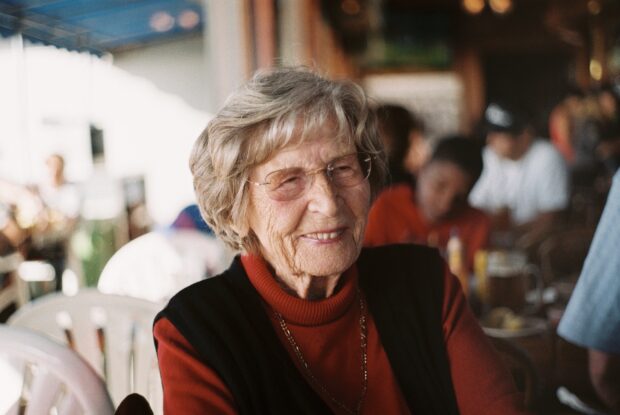
Aging is a unique journey, a blend of changes and growth that weave into the fabric of our lives. Amid this transition, a group of dedicated professionals steps forward as guides—experts who understand the art of aging well. They are skilled in helping the elderly navigate the later part of life.
Their influence is far-reaching, extending beyond medical treatment to include emotional support, customized attention, and overall well-being. In a world where the elderly population is expanding, their role becomes increasingly crucial.
In this article, we will discuss these medical professionals who specialize in the art of aging well.
Advanced Education for Geriatric Expertise
The strong foundation laid by special geriatric education programs nurtures the expertise necessary to navigate the intricacies of senior care. Through comprehensive coursework and hands-on experience, healthcare professionals are equipped to address the unique challenges and opportunities that aging presents.
The specialized training offered by programs such as Adult-Gerontology Primary Care Nurse Practitioner (AGPCNP) programs plays a crucial role. By focusing on the distinctive healthcare needs of aging populations, AGPCNP programs prepare individuals to become compassionate caregivers. The University of Indianapolis emphasizes that these programs empower graduates to address medical concerns and promote overall well-being.
The BSN-DNP AGPCNP program is particularly popular as it helps attain proficiency in the field of adult-gerontology primary care. With the growing popularity of remote courses, many universities have made provisions for a doctorate AGPCNP online program. This allows nursing professionals to balance their careers while furthering their education.
Forging a Fresh Approach to Senior Health
Acknowledging the wisdom that accompanies aging, geriatric professionals are leading a revolutionary transformation in senior healthcare. They recognize that while physical changes occur, the potential for growth, learning, and joy remains boundless.
For example, HelpGuide.org pointed out that a recent Swedish study identified exercise as the primary factor for extended life. This held true even for individuals who began their exercise routines in their later years.
In the geriatric practice, the focus extends beyond treating illnesses to promoting overall well-being. By integrating physical, emotional, and social dimensions of health, these experts shape a comprehensive approach that honors seniors’ lives.
Customized Care for Unique Journeys
Seniors deserve care that respects their individuality. Health experts understand that each senior’s journey is unique and influenced by factors such as medical history, lifestyle, and personal aspirations.
From managing chronic conditions to promoting preventive measures, their approach recognizes that health extends beyond the confines of medical charts. By tailoring interventions to suit the individual, they empower seniors to take ownership of their well-being.
Wellness as a Way of Life
Wellness is not a destination, it’s a journey that requires continual nurturing. Beyond addressing medical concerns, healthcare specialists view wellness as a comprehensive way of life. They champion a holistic approach that encompasses nutrition, physical activity, mental health, and spiritual well-being.
Through collaborative discussions, they co-create wellness plans that align with seniors’ choices. By encouraging regular exercise, promoting a balanced diet, and promoting mindfulness practices, they help seniors embrace a healthy lifestyle.
Navigating Health Transitions with Grace
Aging often comes with health transitions, whether it’s recovering from surgeries or adapting to new medications. Geriatric professionals act as compassionate guides, helping seniors navigate the challenges of health changes while preserving their sense of self.
According to the National Library of Medicine, compassion and empathy are essential components of person-centered elderly care. Empathy promotes successful communication as part of the delivery of person-centered care. Positive outcomes include greater emotional well-being and adherence to treatment strategies.
With empathy and expertise, healthcare professionals provide the information and support needed to make informed decisions. By facilitating open conversations, they empower seniors to actively participate in their care plans.
Cultivating Social Connection and Purpose
Isolation can be detrimental to seniors’ well-being, leading to feelings of loneliness and depression. The CDC reports that social isolation is related to a 50% greater risk of dementia.
Furthermore, loneliness was linked to a roughly four times greater risk of mortality in heart failure patients. Geriatric experts place a strong emphasis on developing social connections and helping seniors find a purpose.
Recognizing that relationships are a cornerstone of well-being. They encourage seniors to connect with their communities. Sometimes through social groups, other times through volunteering or hobbies. By nurturing a sense of belonging, they enhance mental and emotional resilience.
Empowering Families as Allies
The impact of geriatric professionals extends beyond individual seniors; they are allies to families as well. Aging often involves a collaborative effort, and families play a crucial role in supporting their loved ones. By providing guidance, education, and support, these experts empower families to navigate the intricacies of supporting their aging members.
They bridge the gap of knowledge, ensuring families understand the specifics of aging-related changes and how to provide effective support. This collaborative partnership eases the journey for both seniors and their families, fostering open communication and shared decision-making. Through their guidance, families become better equipped to provide the care, love, and assistance that seniors deserve.
Ending Note
In the evolving narrative of aging, geriatric nurses emerge as architects of a purposeful and vibrant journey for the elderly. Their specialized training combines medical expertise with a holistic perspective, honoring individual paths and promoting overall well-being.
Through empathy and personalized care, they redefine the aging experience by weaving social connections and fostering resilience. By empowering families as partners, they bridge understanding and support, enriching the collective voyage. In an aging society, their role becomes more significant, creating an aging narrative enriched with wisdom, vitality, and shared compassion.

